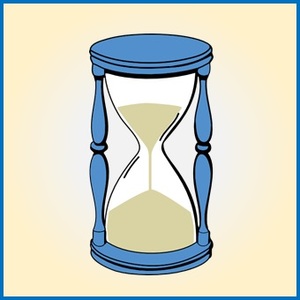I discovered lessons from football and curling about leading through chaos.
Without the luxury time, what’s a quarterback to do?
On a football team, the quarterback gathers whatever information he can, makes a decision, and takes action. His team mates are aware of the chaos around them, but trust their leader to guide them through it. And this leader does so without the luxury of time or thorough review. He has 20 seconds! Which means accepting some ambiguity and uncertainty. Maybe his action will lead to losing the ball, but his inaction would definitely lead to losing the ball.
Like a quarterback, the skip on a curling team is gauging the situation, making decisions, and taking action.
“Ultimate best decision” vs. “reasonable option forward”
When I became a curling skip, I gained a reputation for being slow. My games took a long time.
I wanted to figure out all of the options to make the best decision. And ‘best’ often meant the one with the least possibility for a disaster and giving up a lot of points. I was spending time trying to decide what would look good and what wouldn’t look bad. This meant imagining twenty or more options in my head, talking them through with a teammate, and sometimes walking around to see the angles between all the rocks. Every idea would lead to another permutation to consider.
Often, it was a forceful prompt from my team that would get me to declare the shot and play would resume.
I progressed to higher levels of competition, and I got a little faster, though it was still unlikely that my team would be the first one off the ice.
Then, to my surprise, the rules of curling were amended to implement time clocks! Any team that ran out of time would end up losing the game.
Suddenly, if I wanted to keep competing, I had to really improve the speed of my decision-making.
My first step was to stop worrying about worst-case outcomes as I planned our shots. I focused on becoming more willing to move ahead with what seemed reasonable and accept the consequences.
I had been worried about being judged
My worry about being judged for making a bad decision had been slowing me down. Long games were draining my teammates’ enthusiasm. It just wasn’t fun to play scared. So I am grateful that a rule forced me to see this reality.
The rule was judging me for making slow decisions, and it didn’t care if they were perfect or not. It gave me permission to stop looking for the ultimate, safest decision. It reinforced that any decision that kept us moving forward was a good one.
I leaned into a different approach
I gradually moved from saying, “What are the risks if I do this?” to saying, “Would this be a fun shot, and just see what happens?” Our team spirit lifted, as we got excited about being creative with our shot-making. Exclaiming “Did you see that?” with big smiles and high fives became a joyous part of our games.
My approach now is to be comfortable acting with what I know in the moment and accepting whatever happens.
Being accountable is being visible, whatever happens
Outside of curling, I don’t have a ticking clock to force me out of my head and into action or to remind me not to play scared or safe.
I use the time clock as a helpful metaphor for accountability. It reminds me that I know the feeling of committing to doing something my way, taking visible action, and being willing to be judged for it. It encourages me to tap into that feeling and take all opportunities to stand out.
Exercise for decision-making muscle
- Today, look at your schedule for the week, and identify 5 meetings or conversations that are coming up.
- Be prepared that at the end of each meeting, you can start a timer for 3 minutes.
- Trusting that what you remember is good enough, write a summary of the outcomes. (Perhaps it’s bullet points of the big decisions make, of new ideas generated, and/or of important action items.)
- When the timer goes off, stop writing.
- Review what you managed to capture, and consider if it’s “good enough” as your record and potentially for distribution.
- At the end of the week, notice any patterns of what was easiest to capture and what was hardest, and how you felt having a countdown.


